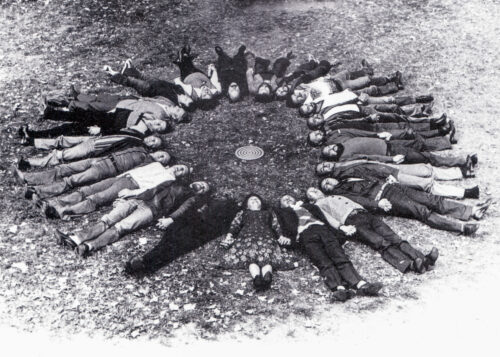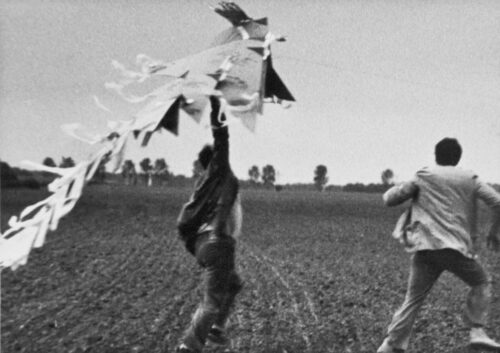Zsennye Workshop [Zsennyei Műhely]
The annual Zsennye Workshop was founded in Hungary by the designers and educators József Cserny, Péter Lelkes, and Miklós Jancsó, with the first event in 1978 focussed on ‘the place and role of design within the arts system’.
The aim of the workshop was to create an international forum for professional contacts by providing an informal setting for designers to communicate and exchange ideas. Design education played a key role from the very beginning. The workshop leaders Cserny and Lelkes were associated with the School of Applied Arts and the Budapest University of Technology, respectively. Although the original idea was to bring together designers from both East and West, the workshop was mainly attended by creatives from Eastern Bloc countries. It was only in the latter half of the 1980s that it became possible to engage with Western practitioners more broadly. Frequent lecturers included theorists and pedagogues associated with the Senezh studio—such as Karl Kantor, Yevgeni Rosenblum, and Mark Konik—as well as the East German designer and theorist Horst Oehlke. In 1979, the workshop’s board was joined by Andrzej Pawłowski from the Academy of Fine Arts in Kraków, who was then chairman of ICSID.
The main objective of the Zsennye Workshop was to advance design in order to help promote cultural and social development, particularly in a socialist context. The workshops focussed on theory, the role of designers in society, and their working methods. Apart from a few concept designs, sculptures, and sketches, the aim of Zsennye was ‘not to create together, but to think together’. The idea was to learn about each other’s contexts in order to lay the foundations for a new understanding of design, one informed by a social and moral commitment. In the early 1980s, the workshop began to address environmental issues as well, and the Zsennye workshops have successfully continued into the present day.
Countries: Hungary
Tags: Environmental design, Product design



